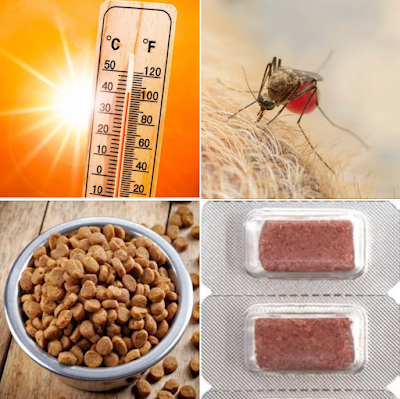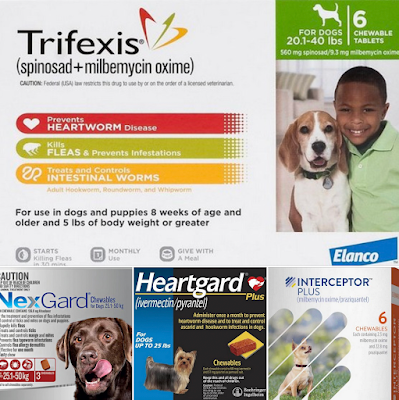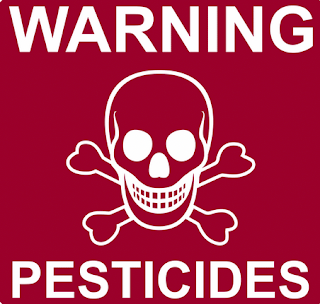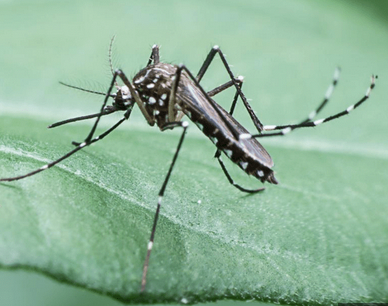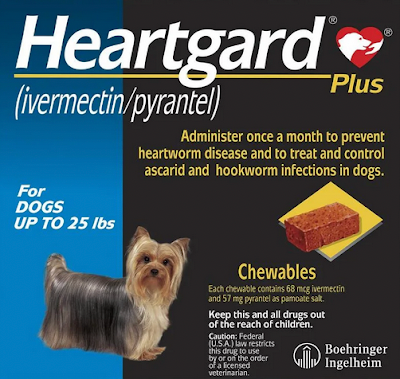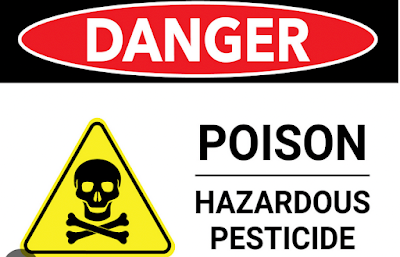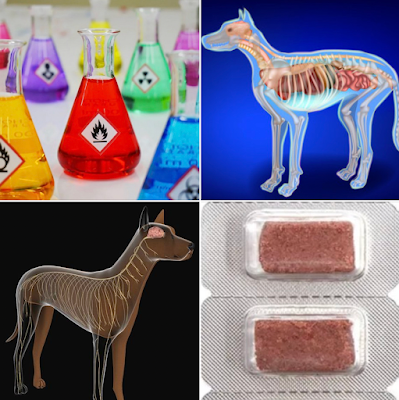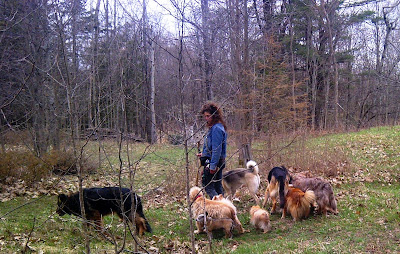Does Your Dog Really Need to Be On Heartworm Medication? The Truth about Heartworm Prevention, Conventional Preventatives, Natural Safe Alternatives
★14 min read
In this article:
- Risk Assessment
- Are You Really in a High-Risk Zone?
- Does Living in a High-risk Zone Mean You Have No Choice?
- Pressure To Use Conventional Heartworm Preventatives
- How Does Infestation Occur?
- Conditions Must be Perfect for Infestation to Occur
- How Do Conventional Preventatives Work?
- What Conventional Heartworm Preventatives Do
- Consequences And Adverse Side Effects
- Adaption of Mosquitoes and Heartworm Larvae To Conventional Preventatives
- Risk of Adverse Effects To The Individual Dog
- Examination of an Example Product, Heartgard
- Why Did My Dog Spit It Out?
- A Model of Natural Immunity
- Use a Layered Natural Approach To Prevention
- Help Protect Your Dog and Cat's Health By Avoiding Unnecessary Conventional Medications
- Reduce Your Dog and Cat's Exposure to Toxins and Carcinogens
- Use Safe, Non-Toxic Alternatives to Repel Insects and Parasites
- Get Your Dog and Cat on a Species Appropriate Raw or Gently Cooked and Fresh Food Diets
- Examples of Conventional Insect, Parasite Preventatives and Adverse Side Effects
- Learn More About Conventional Preventatives and Natural Alternatives
How do you know if your dog or cat really needs to be on a heartworm preventative?
Should you take your veterinarian's advice or should you double-check on the advice you received?
If you put your dog on conventional heartworm prevention products are there steps you need to take to ensure the safety of your dog and cat?
If you don't know the answers you are putting your dog and cat's health at risk despite your best intentions.
This article will:
- Answer those questions.
- Expose the truth about conventional heartworm prevention products.
- Provide you with the opportunity to learn about natural alternatives.
- Who is defining the area you reside in as a 'risk area' for heartworm
- What are they defining the risk, low, medium, high?
- How is the risk level actually defined and estimated?
- What is the actual source of information the assessment is based on?
- Who is funding the assessment?
1.1 Are You Really in a High Risk Zone
If you're in the USA, locations that are truly high
risk are:
- Florida
- Hawaii
- Some locations along the Gulf Coast (i.e. New Orleans).
- Some parts of Texas
Can you trust
the maps generated by the American Heartworm Society (AHS)?
The answer is NO.
Why?
Because AHS is heavily
sponsored by 8 (eight) of the major pharmaceutical companies who produce conventional heartworm preventatives.
You can find-up-to-date
maps on the AHS site. However the data which the maps are based on is designed
to boost sales of heartworm products. The maps are not reflective of actual reality.
1.2 Does Living in High Risk Zone Mean You Have No Choice?
If you live in a high-risk zone for heartworm...
You may feel there's no choice. That conventional heartworm preventatives are your only choice.
You do have a choice.
There is an alternative for dogs in high risk, medium and low risk zones.
I have all of my high-risk zone client dogs on natural heartworm prevention protocols, they do not get heartworm infestations. Nor do my client cats.
This includes all my client dogs in Florida, Texas, etc.
1.3 The Pressure To Use Conventional Heartworm Prevention
In North America, many veterinarians, (including those located in very low risk areas for heartworm infection), continue to push use of synthetic-chemical
pesticide-based heartworm prevention products.
Why?
The big pharmaceutical
companies (i.e. Pfizer) aggressively market conventional heartworm products
to veterinarians.
The marketing campaigns base their 'facts' on:
- Skewed data
- Incomplete reporting (on, e.g. side effects, testing results, comparisons and alternatives).
Unfortunately the pharmaceutical companies’ objective is not
the health of your dog. Their focus IS profit.
Some veterinarians are not aware of the truth about
these products specifically that these products:
- Don't provide 100% protection from heartworm.
- Cause serious acute and long-term health issues, including (a partial list):
- Endocrine system damage.
- Gut issues and conditions.
- Immune system damage.
- Kidney damage
- Liver damage.
- Neurological system damage, leading to:
- Seizures.
- Death.
Why?
Some veterinarians simply don't care.
- They profit from the sale of conventional heartworm prevention products.
- They profit from 'looking after' your dog when the toxic pesticides (in the conventional products), destroy your dog's health.
- They can choose to educate themselves about better alternatives.
- They choose not to...which is equivalent to not caring.
2.0 How Does Heartworm Infestation Occur?
2.1 Conditions Must be Perfect For Infestation to Occur
Ambient air temperature conditions must be perfect for the heartworm larvae to:
- Survive in the mosquito.
- Then survive under the dog's skin.
- Then survive L-1 thru to L-4 of larvae development.
- The larvae do not survive in a dog with a properly supported immune system.
- Dogs on a) highly processed food diet, b) conventional anti-parasitic flea, heartworm, tick, intestinal parasite products, and c) toxic personal care products:
- Do not have a properly supported immune system.
- Do have an acidic blood and urinary pH.
- These dogs are the perfect host for heartworm larvae.
During larvae development within the mosquito,
the ambient air temperature must remain above 57 degrees Fahrenheit (13.8 degrees Celsius) day and night for a minimum of two weeks. If at any time during this stage in the larva's life, the temperature drops
below 57 degrees F, development of the larvae is stopped and must start all over again if and when the temperature increases. The larvae must reach the L-3 development stage before it can infest a dog.
At stage L-3 of development heartworm larva are left in a tiny droplet of mosquito saliva which is deposited next to the mosquito bite location on the dogs skin.
Once again the ambient air temperature must be right, and the humidity content in the air must be sufficient to avoid evaporation of the saliva droplet. The larvae cannot enter the dog's body without the saliva. To enter into a dog ( or cats) body, the L-3 larva must swim through the droplet and thereby makes its way into the actual hole made by the mosquito bite.
Once inside the dog the L-3 larva spends the next 2 weeks developing into an L-4 stage larva. At L-4 the larva is still living just under the dog's skin, were it will remain and continue to develop into L-5 over the next 3 to 4 months.
At L-5 stage of development the larva then enters the dog's blood stream, where it migrates to the heart and pulmonary arteries.
Five to seven months after entering the dog's body the larva will mate if both female and male larva is present. The mating of the larva results in the production of the heartworm (the microfilariae).
3.1 What Conventional Heartworm Preventatives Do
Heartworm preventatives don’t stop
your dog from being:
- Bitten by a mosquitoes.
- Infected by heartworm.
Instead, synthetic-chemical pesticide-based heart worm preventatives poison and
subsequently kill the larvae once it (the larvae) is in your dog’s system.
The pesticide also poisons your dog's system.
Blood
tests are recommended prior to your dog (or cat) taking heartworm preventative because:
- If your dog (or cat) is already infected with larvae, ingesting the preventative will not kill the worms
- A different treatment will be required if your dog or cat is already infested.
Blood testing is typically recommended at least two times a year:
- Because conventional preventatives are NOT effective.
4.0 Consequences and Side Effects of Conventional Preventatives
4.1 Adaption of Mosquitoes and Heartworm Larvae To Conventional Preventatives
Due
to long-term extensive use of conventional preventatives, mosquitoes and their
larvae adapted to the pesticides in the original conventional preventatives.
The response from the pharmaceutical companies - develop products with stronger synthetic chemicals to combat the immunity of the mosquitoes. This makes the products on the market today, even more dangerous for your dog.
The real key to preventing heartworm is to make your dog's skin and blood undesirable to a mosquito. The same approach is required for your cat.
A healthy dog and cat's blood has a bitter taste that parasites do not like. The bitter taste indicates to the insect that the intended host (your dog) is not a hospitable place for the mosquito larvae. The larvae will be attacked and killed by the host's body.
A dog or cat with an unbalanced blood and urinary pH has a sweet taste that attracts parasites. The sweet taste indicates to the insect that the hosts body is the perfect environment for the parasite to survive and thrive.
4.2 Risk of Adverse Effects To The Individual Dog
Pesticide-based heartworm preventatives contain very strong pesticides. According to the American Veterinary Medical Association:
- 65% of adverse drug reactions, and;
- 48% of all reported deaths - resulting from drug interactions are caused by conventional pesticide-based heartworm preventatives.
For example the active ingredient in Heartgard is Ivermectin. Ivermectin has many adverse side-effects, including:
- Aggressive behaviour (sudden aggressive behaviour)
- Autoimmune disorders
- Depression
- Diarrhea
- Difficulty breathing
- Dizziness
- Fertility problems
- Fever
- Lethargy
- Liver problems
- Loss of appetite
- Nose bleeds
- Paralysis
- Pneumonia
- Thyroid problems
- Tremors
- Seizures
- Skin eruptions
- Sudden death
- Vomiting
- Weakness
The active ingredients in other chemical-based heartworm preventatives have many of the same or similar side effects.
At the bottom of this article there's a list of various conventional parasite prevention products, and examples of their side effects and cautions.
4.3 Wash Your Hands, Why?
Have you thought about why the labels on conventional heartworm preventative products warn you to:
- Avoid contact with your skin.
- Wash your hands directly after touching the product.
It's because the active ingredients are very toxic pesticides. It only takes a small amount to enter your blood stream via contact with your skin, and cause you harm.
The active ingredients are poisons that:
- Weaken your dog and cat's immune system.
- Damage your dog and cat's gut, endocrine system and nervous system.
- Force your dog and cat's liver and kidneys to work over-time to eliminate the toxins.
4.4 Examination of an Example Product, Heartgard
Active Ingredients of Heartgard 30 Plus Chewable for Dogs:
Ivermectin and Pyrantel.
For more information on the adverse side effects of ivermectin and pyrantel:
- See the chart in section 6 of this article.
- More in this article.
A quick look at *Merial's Heartgard material data safety sheet should make you question use of this and similar products.
Section 2 of Merial's Heartgard material data safety sheet:
"Risk Phase (Hazard):
HARMFUL IF SWALLOWED (R22)
Safety phrase(s)): KEEP OUT OF THE REACH OF CHILDREN (S2)
(Precautionary statements) KEEP AWAY FROM FOOD AND DRINK (S13)
DO NOT EMPTY INTO DRAINS (S29)
IF SWALLOWED, SEEK MEDICAL ADVICE IMMEDIATELY AND SHOW
THE CONTAINER OR LABEL (S46)"
Safety phrase(s)): KEEP OUT OF THE REACH OF CHILDREN (S2)
(Precautionary statements) KEEP AWAY FROM FOOD AND DRINK (S13)
DO NOT EMPTY INTO DRAINS (S29)
IF SWALLOWED, SEEK MEDICAL ADVICE IMMEDIATELY AND SHOW
THE CONTAINER OR LABEL (S46)"
"Local Effects of Product:
Poisonous if swallowed. Symptoms following over-exposure to the
ivermectin ingredient may include: drowsiness, nausea, vomiting,
tachycardia, somnolence, blood pressure variations, slow breathing, dilation
of pupils, tremors, and incoordination."
ivermectin ingredient may include: drowsiness, nausea, vomiting,
tachycardia, somnolence, blood pressure variations, slow breathing, dilation
of pupils, tremors, and incoordination."
"Chronic Effects of Product:
Unknown for product mixture.
Pure ivermectin is a reproductive toxin in mice and rats only at doses that cause toxicity to the mother; however, in rabbits foetotoxicity and teratogenicity were noted at doses not toxic to the mother. Rats exposed in utero through lactation, and for an additional three
months, showed signs indicative of intravascular haemolysis"
months, showed signs indicative of intravascular haemolysis"
Note, there's NO information or study provided on the adverse chronic effects in dogs.
Section 13 of Merial's Heartgard material data safety sheet:
"As the active ingredient is toxic to aquatic organisms, care is required to ensure that the product does not reach drains or waterways."
Its also toxic to your dog.
As well:
- When your dog urinates residue of the ingested toxin ends up in the environment.
- As noted in this article, the use of these synthetic chemicals have and continue to cause the adaption of mosquitoes to the chemicals.
- End result, increasing lack of effectiveness in killing heartworm.
- However your dog's body does not evolve to manage the toxic ingredients.
- End result, your dog's health and wellness is significantly harmed.
- Risk increases with repeated and long-term use.
*the pharmaceutical company that makes HeartGard.
4.5 Why Did My Dog Spit It Out?
The pharmaceutical industry uses flavoring to mask (cover-up) inappropriate ingredients.
Your
dog's (and cat's) taste
receptor system is responsible for detecting chemicals present in the
oral
cavity. The taste receptor system evolved to ensure dogs (and cats) self-selected safe and appropriate substances to consume in their natural setting.
When given a conventional heatworm preventative chew, many dogs will do one or a combination of the following:
- Hesitate to take it.
- Refuse to take-it
- Take it and immediately spit it out.
If you 'hide' the product in something your dog likes to eat, you are forcing your dog to consume a poison her body knows is harmful to her health. Listen to your dog.
Sadly, many other dogs instinctive detection system is so damaged by long-term exposure to masked toxins, the flavoring in the heartworm chewables is sufficient to trick the dog.
Flavoring (a toxin)
- Learn more about flavoring in this article.
Self-Selection:
5.0 A Model of Natural Immunity
Coyotes, foxes and wolves are a good example of how a species appropriate diet (meat, fat, some berries, grasses and herbs) protects healthy animals from heartworm infestation.
Coyotes and foxes have been identified as having the capability to:
- Fight-off infestations of heartworm and/or;
- Manage a heartworm infestation so the host fox, wolf or coyote is never in mortal danger. from the heartworm larvae.
This is a natural response by a healthy immune system. A healthy dog's immune system functions the same way.
So why are our domesticated dogs at such high risk?
Domesticated dogs today:
- Are exposed multiple times daily to toxins - ingested, inhaled, injected, etc.
- The result is an:
- Acidified body.
- A weak immune system.
- The body is attractive to mosquitoes.
- The body cannot kill the larvae.
- Fed highly processed food diets (kibble and canned food).
- Over-exposed to conventional medication (injected, ingested, topical).
- The weakened immune system that leads to the infestation.
- The weakened immune system that cannot perform it;s normal task of killing the larvae....
Is what kills the dog.
The key is to keep your dog's immune system healthy.
6.0 Use A Layered Natural Approach to Prevention
Your dog's first defence against parasites and disease is a strong immune system.
6.1 Help Protect Your Dog and Cat's Health, By Avoiding Unnecessary Conventional Medications
Ten of the top ten reasons for bringing a dog and cat to the veterinarian are diet related.
Inappropriate diet is the primary cause of:
- Acid reflux and other gastrointestinal issues
- Diarrhea
- Ear infections
- Food allergies
- Kidney, liver and heart issues
- Metabolic Issues
- Oral health issues
- Urinary Tract Infections
- Urinary Tract Stones
- etc.
6.2 Reduce Your Dog and Cat's Exposure to Toxins and Carcinogens
Avoid exposing your dog to harmful chemicals in their food and immediate environment, including toxins in:
There are many articles on my blog site for natural options.
You'll find many natural insect repelling recipes on my blog site.
For example:
Recipes for natural insect repelling sprays:
- Go to this article.
For more natural recipes and recommendations go to 'insects' in the blog labels or use the search function on the blog site.
6.4 Get Your Dog (and Cat) on a Species Appropriate Raw or Gently Cooked and Fresh Food Diet
Transition your dog and cat to a species appropriate raw diet. There are some differences between a species appropriate diet for dogs v.s cats. The difference is discussed in this article.
A species appropriate raw diet is the foundation for a healthy immune system. A species appropriate gently cooked and fresh food diet is the next best choice.
There are many articles on fresh raw foods and homemade food recipes on this blog site. Search the blog labels on the side bar, or use the blog search function.
7.0 Example of Conventional Insect, Parasite Preventatives and Adverse Side Effects
For a comprehensive guide to
toxic synthetic-chemical insecticides and pesticides used in
conventional heartworm preventatives and treatment, side effects and risks,
including:
- Diflubenzuron (Vectra, etc.)
- Fluralaner (Bravecto, Vetecto, etc.)
- Imidacloprid (Advocate, K9 Advantix, Seresto, etc.)
- Ivermectin (Heartgard, Tri Heart Plus, etc.)
- Milbemycin Oxime (Interceptor, Nexgard, etc.)
- Nitenpyram (Capstar, etc.)
- Praziquantel (Interceptor Plus, etc.)
- Pyrantel Pamoate (Heartgard, Simparica Trio, etc.)
- Pyrethins (dips, shampoo, spot on, sprays)
- Pyrethroids (K9 Advantix II, Spot on products)
- Selemectin (Revolution, etc.)
- Spinosad (Comfortis, Trifexis)
Go to this article.
8.0 Learn More About Conventional Products and Natural Alternatives
Learn more about adverse side effects of:
- Conventional flea, tick heartworm products.
- Conventional intestinal parasite products.
And natural alternatives.
Go to this article.
Holistic Diet, Nutrition, Wellness Services Tailored to Your Individual Dog and Cat
For information about my holistic diet, nutrition and wellness services, visit my holistic wellness services page.
Maintain good health | Address acute and chronic health issues | Pre and post surgery support and recovery
My holistic wellness services are available worldwide via video consultation.
🌎 USA | Canada | UK | Europe | Australia | New Zealand | Asia | South and Central America | Africa | UAE
📱FaceTime | Facebook | Skype | WhatsApp
To set-up your holistic wellness consultation get in-touch via email, go to my contact me page.
Holistic Behavioral Services for Your Dog
For information about my holistic behavioral services, visit my holistic behavioral services page.
For dogs of all ages, sizes and breeds.
My behavioral services are available worldwide via video consultation.
🌎 USA | Canada | UK | Europe | Australia | New Zealand | Asia | South and Central America | Africa | UAE
📱FaceTime | Facebook | Skype | WhatsApp
To set-up your holistic behavioral session get in-touch via email, go to my contact me page.
Affiliations to Companies
✓ None.
✓ I don't sell food, supplements, or other products.
✓ I'm not aligned with any companies.
Article and graphics by Karen Rosenfeld.




